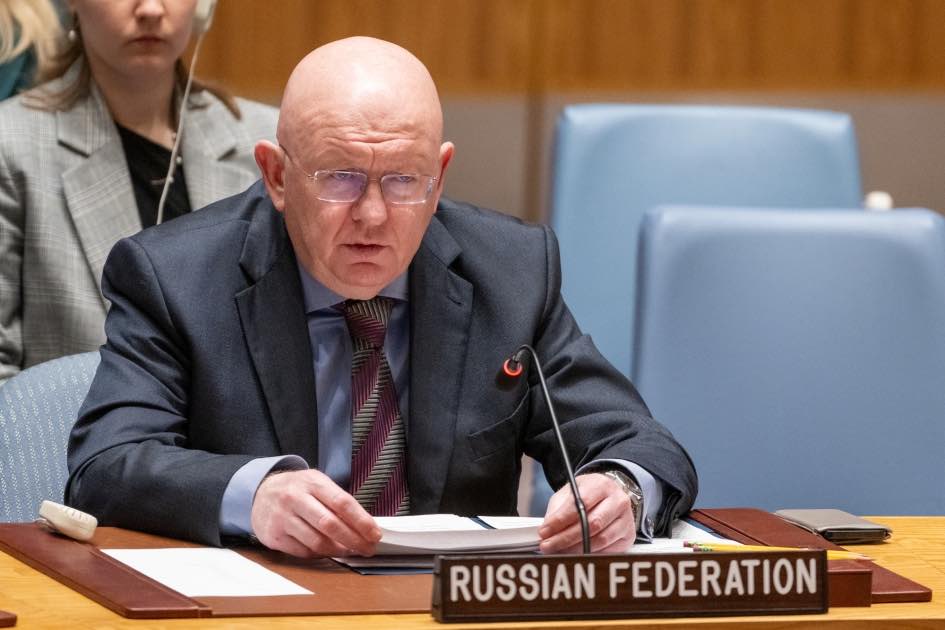April 9, 2024
Mme.President,
We thank SRSG Massieu for the substantive briefing. We welcome Minister of Foreign Affairs of Colombia to this meeting.
Colombia continues to be a unique and inspiring example in many ways. Its Government not only volunteered to implement a very difficult set of national reconciliation commitments, but also asked the UN Security Council to monitor and supervise the process.
We always remember and commend that decision, as well as the ongoing efforts of the Colombian state and all participants of the peace agreements. We trust that that is exactly how Colombians perceived the visit by UNSC members in February this year.
Of course, the Council’s visit alone could not and should not have solved the many problems of Colombian peacebuilding. We saw, however, that all participants recognize those issues and maintain an open dialogue with a view to resolving them as effectively as possible.
We note the sincere commitment of the Colombian authorities to the full implementation of the Final Peace Agreement. As noted in the Secretary-General’s report, the legal and instrumental framework for the FPA is finally in place. Up next is the most important thing – the actual implementation of the document’s provisions.
Unfortunately, the process is still moving at a slow pace, which is justifiably criticized by the signatories of the FPA who represent both former combatants and victims of the conflict. Armed violence is still exorbitant. It is unacceptable to continue attacks and assassination attempts against former combatants, who must be provided with adequate security guarantees and opportunities to return to a peaceful life. We also note the concerns of the signatories to the FPA regarding the modalities of the work of the Special Jurisdiction for Peace. We trust that differences will be resolved through inclusive dialogue while preserving the independent work of this crucial body of transitional justice.
We believe that the dialogue initiated by President Petro’s administration with armed militias within the framework of the “total peace” policy have made the peacebuilding process in the country more multifaceted and comprehensive. At the same time, for it to be more successful and predictable, it would be useful to have a road map of state policy to stipulate specific tasks and deadlines.
Russia has always advocated the inclusion of the National Liberation Army in the peace process, and we are pleased to see that the ceasefire regime with this militia is generally successful. We appreciate the contribution of the United Nations Verification Mission in Colombia (UNVMC) to preventing potential clashes between the parties within the framework of the ceasefire monitoring and verification mechanism.
We understand the difficulties in negotiations with the FARC dissidents. Their continued attacks on civilians, kidnappings and the recruitment of minors are unacceptable. Indigenous people and Afro-Colombians are the most affected by the violence perpetrated by the FARC.
In particular, indigenous leaders from Cauca department, who have arrived in New York for the first time, recently shared their concerns with us. We note their calls not only to operationalize the Ethnic Chapter of the FPA, but also to give indigenous populations a greater role in dialogue with militias from whose activities they suffer.
We emphasize that, regardless of progress at various negotiating tracks, the implementation of the 2016 Final Agreement must remain an unconditional priority and a standard for all peacebuilding efforts by the Colombian authorities.
As a permanent member of the United Nations Security Council, Russia will continue to support the peace process in Colombia in order to make it sustainable and irreversible, as well as the work of the UNVMC under the leadership of Carlos Ruiz Massieu.
Thank you.


